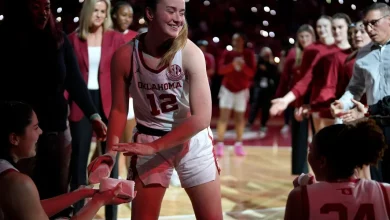Georgia’s NIL Tax Shield Will Lead to a National Reform Wave in Policy

Georgia’s NIL Tax Shield Will Lead to a National Reform Wave in Policy
In the ever-evolving landscape of college athletics, the introduction of Name, Image, and Likeness (NIL) rights for student-athletes marked a monumental shift. For the first time in history, college athletes were allowed to profit from their personal brand while maintaining their eligibility to compete in NCAA sports. This seismic change, which went into effect in 2021, brought with it numerous challenges, questions, and, most importantly, opportunities for athletes, universities, and stakeholders across the country.
In the wake of NIL’s implementation, states and universities have sought to find the most advantageous ways to support their athletes and keep pace with the shifting dynamics of college sports. One of the most significant and innovative developments in this regard has emerged from Georgia: the creation of a unique NIL tax shield that promises to have far-reaching implications for the future of NIL policy. This initiative by Georgia, designed to provide tax relief for student-athletes earning income through NIL deals, has the potential to set off a wave of national reform.
This article will explore the development of Georgia’s NIL tax shield, examine its implications for college athletes, universities, and policymakers, and discuss how it could serve as a catalyst for broader changes in the national approach to NIL regulations.
The Emergence of NIL Rights and the Need for Reform
Before delving into the specifics of Georgia’s NIL tax shield, it is important to understand the context in which such a policy emerged. For decades, NCAA student-athletes were prohibited from profiting from their name, image, and likeness, with the governing body arguing that allowing athletes to earn income would threaten the amateurism of college sports. However, with mounting pressure from legal challenges and advocacy groups, the NCAA finally relented in 2021, allowing athletes to sign NIL deals with brands, companies, and other third parties.
While the NCAA’s decision was a landmark one, it also created a patchwork of rules and regulations across states. Some states enacted robust NIL laws that provided athletes with clear guidelines and protection, while others had little to no legislation in place. This lack of uniformity led to a chaotic environment, where athletes in certain states had more opportunities than those in others. In this context, Georgia’s NIL tax shield stands out as a policy designed to address one of the most pressing issues faced by student-athletes—taxation.
The Problem of Taxation for NIL Deals
When NIL deals first became a reality, many athletes were caught off guard by the financial complexities they now faced. The newfound ability to profit from their personal brand introduced a range of tax obligations, especially considering the considerable amounts of money many athletes were earning through endorsement deals, social media sponsorships, and other avenues.
For many college athletes, especially those from lower-income backgrounds, understanding and managing taxes on their NIL income proved to be a daunting task. Additionally, many athletes were taxed at a rate that didn’t reflect their status as students but instead categorized them as high-income earners. This led to a situation where athletes who were not accustomed to managing such sums found themselves paying high state and federal taxes on their NIL income.
In Georgia, state lawmakers recognized the challenges that these student-athletes faced and decided to take action to support them. The result was the establishment of Georgia’s NIL tax shield, a measure that provides athletes with significant tax relief on their NIL earnings.
What Is Georgia’s NIL Tax Shield?
Georgia’s NIL tax shield is a groundbreaking policy designed to alleviate the financial burden on student-athletes who earn income through NIL deals. Under this policy, student-athletes are eligible for a tax exemption on the income they generate from their NIL rights. Specifically, Georgia’s NIL tax shield exempts a certain portion of NIL income from state income tax, providing substantial savings for athletes who are participating in the growing NIL market.
The main benefit of Georgia’s NIL tax shield is its ability to shield a portion of NIL income from state taxes, which can otherwise take a significant chunk out of an athlete’s earnings. While federal taxes still apply to NIL income, the state tax exemption is a welcome relief for student-athletes who might otherwise face hefty tax bills.
The policy applies not only to athletes at the University of Georgia but to any student-athlete in the state who is earning money through NIL deals. This makes Georgia a particularly attractive state for high school athletes looking to play college sports, as it offers them an opportunity to benefit from NIL earnings without the same level of tax liability found in other states.
The Broader Impact of Georgia’s NIL Tax Shield
Georgia’s NIL tax shield is a significant development in the ongoing evolution of NIL policy, and its impact is expected to reverberate beyond the state’s borders. The shield’s potential to influence national policy and spark reforms is profound, as it raises key questions about how NIL income should be treated from a tax perspective. As such, Georgia’s bold move could serve as a blueprint for other states to follow, leading to broader national reforms that provide clarity and fairness to college athletes across the country.
1. Encouraging Other States to Implement Similar Policies
One of the most direct implications of Georgia’s NIL tax shield is the potential for other states to adopt similar measures. In the absence of federal legislation governing NIL, states have taken it upon themselves to create their own regulations, with varying degrees of success. Georgia’s tax shield stands as a strong example of how state governments can support college athletes and ensure that NIL deals are beneficial rather than burdensome.
As other states observe the success of Georgia’s initiative, they may be inspired to introduce similar tax exemptions or incentives for athletes within their own jurisdictions. This could lead to a more uniform and streamlined approach to NIL taxation across the nation, with athletes benefiting from clearer and more consistent tax policies.
2. Highlighting the Need for Federal Legislation
While Georgia’s NIL tax shield represents a forward-thinking policy at the state level, it also shines a spotlight on the need for federal legislation to govern NIL rights and taxation across the country. Currently, NIL regulations and tax policies are fragmented, with each state determining its own approach. This lack of uniformity can create confusion and disadvantage athletes who may be subject to varying tax rates based on their location.
Georgia’s move may encourage Congress to take a more active role in crafting comprehensive federal legislation that standardizes NIL rules and ensures that athletes receive fair treatment, regardless of where they are playing college sports. Such federal legislation could provide clear guidelines for how NIL income should be taxed, including whether states should have the ability to impose taxes on NIL earnings and, if so, to what extent.
3. Addressing the Financial Disparities in NIL Opportunities
Another significant impact of Georgia’s NIL tax shield is its potential to address financial disparities in NIL opportunities. One of the key criticisms of NIL, since its implementation, has been that it disproportionately benefits athletes in high-profile sports like football and basketball, leaving athletes in less visible sports with fewer opportunities to capitalize on their NIL rights. By implementing tax shields or other measures, Georgia could make NIL opportunities more accessible to athletes across all sports, regardless of their media exposure.
Additionally, the policy could help level the playing field for athletes from lower-income backgrounds. Tax exemptions can free up more of the NIL income for athletes to invest in their personal development, education, and future endeavors, rather than seeing it siphoned off by taxes. This can be especially helpful for athletes who may not come from wealthy families and may need to support themselves financially during their college years.
4. Attracting More Top Talent to UGA and Other Georgia Schools
From a recruiting standpoint, Georgia’s NIL tax shield offers a clear advantage to programs within the state, particularly the University of Georgia. The ability to retain more of their NIL income makes Georgia an even more attractive destination for high school athletes looking to maximize their earning potential while pursuing a college education. As a result, UGA could see an influx of top-tier talent from across the country, as athletes weigh the financial benefits of attending a school in a state with favorable NIL policies.
This, in turn, could have a ripple effect on college athletics as a whole. Other schools and programs may begin to consider how their state’s NIL policies affect their recruiting efforts, leading to a broader push for more competitive NIL-friendly environments across the nation.









